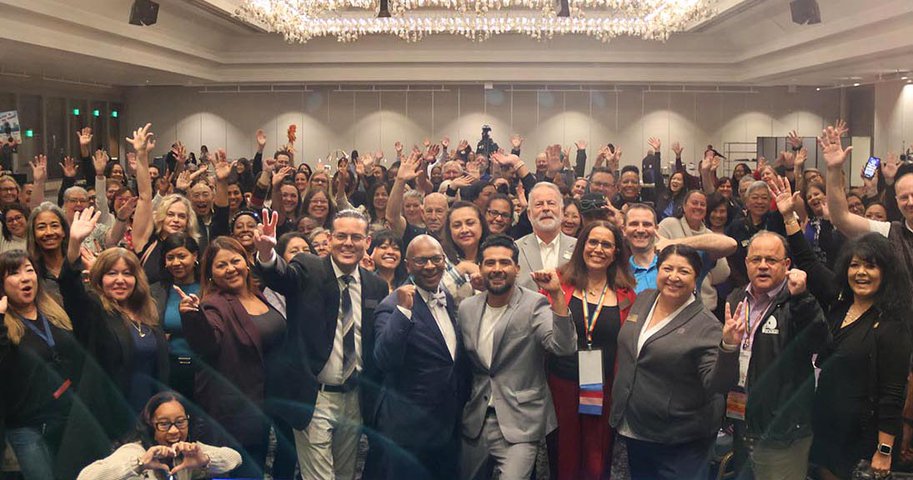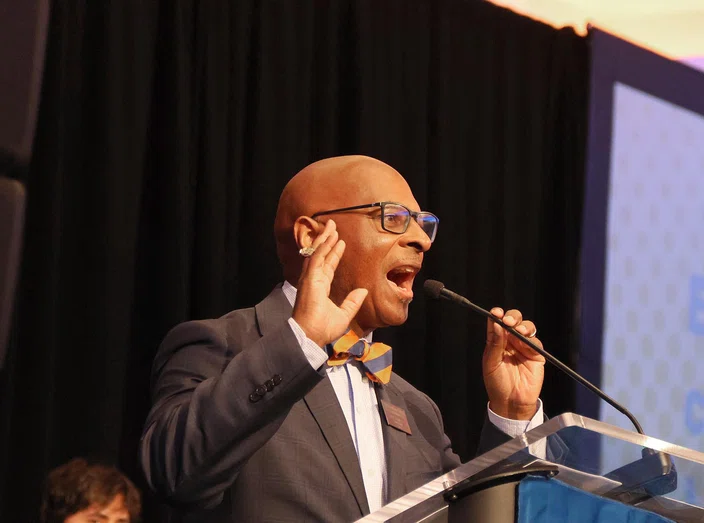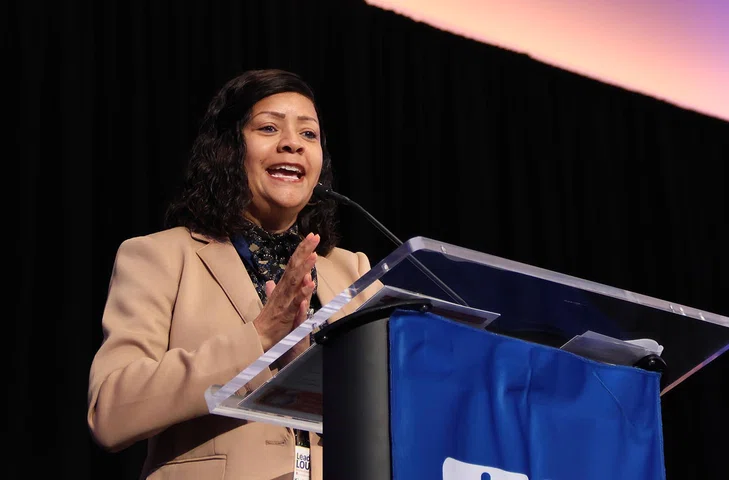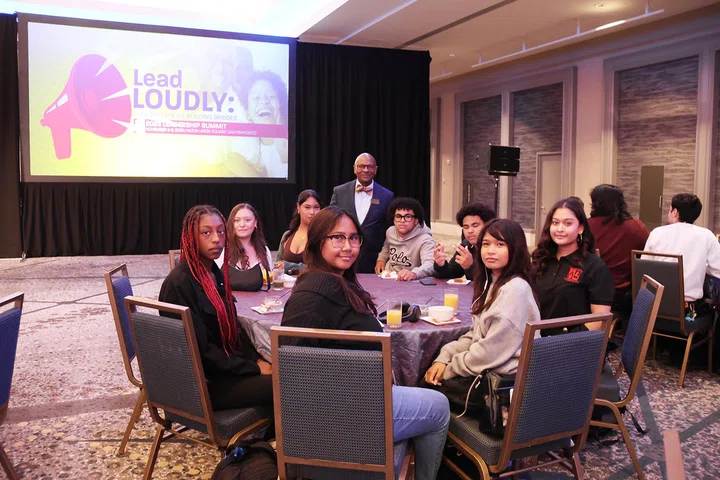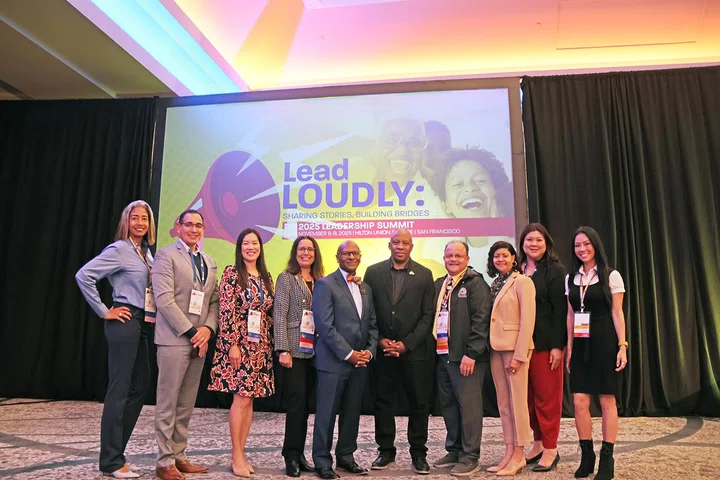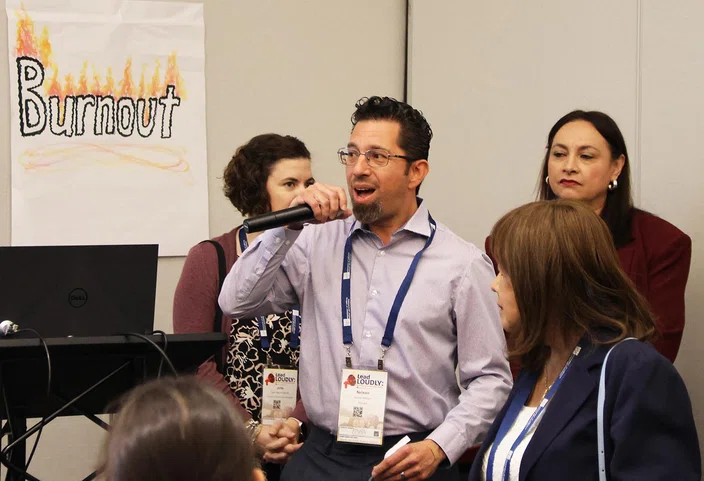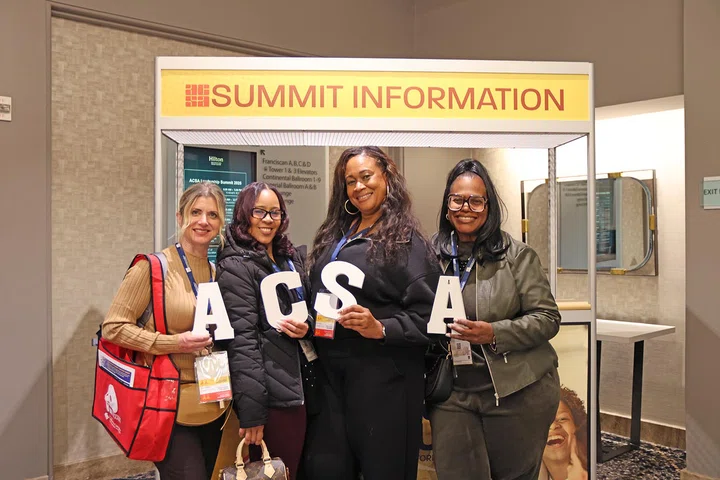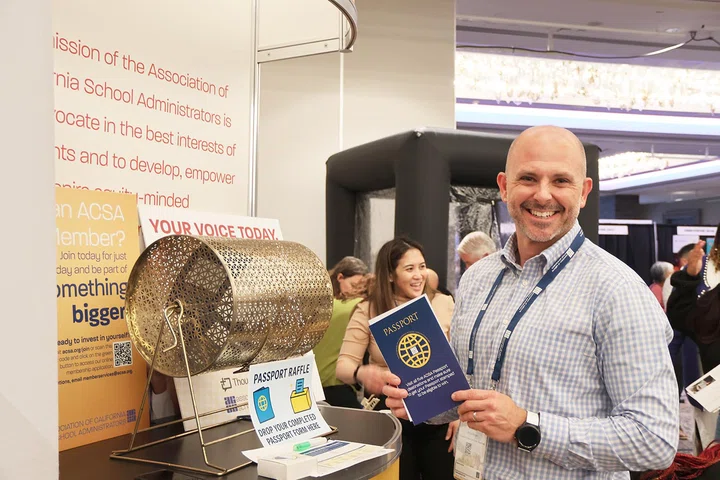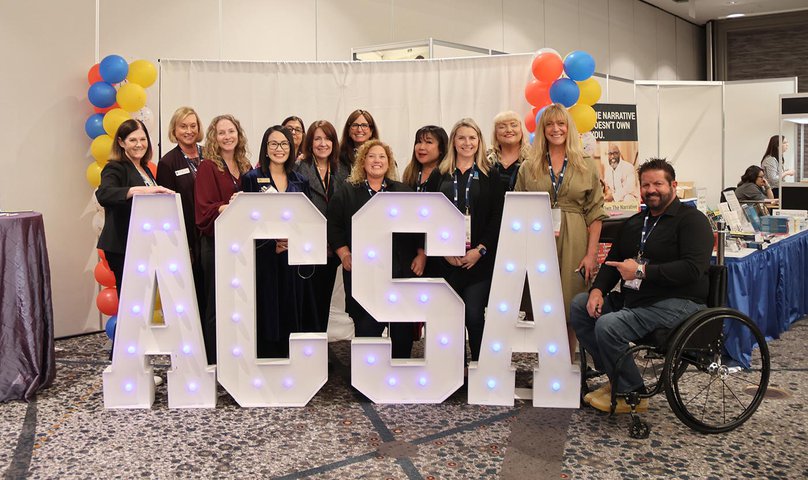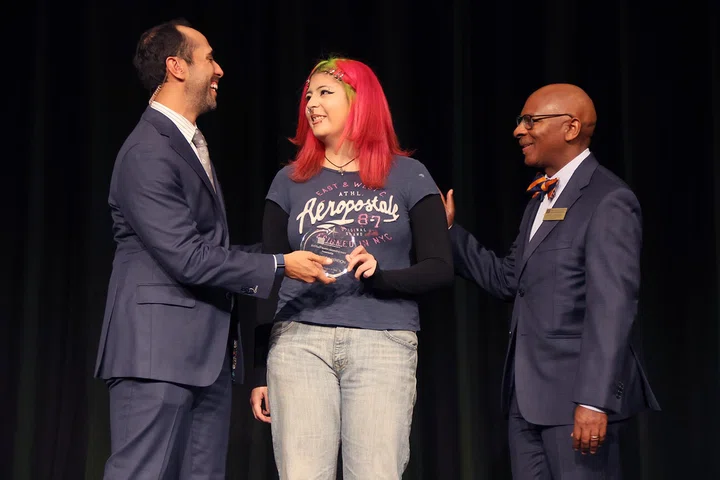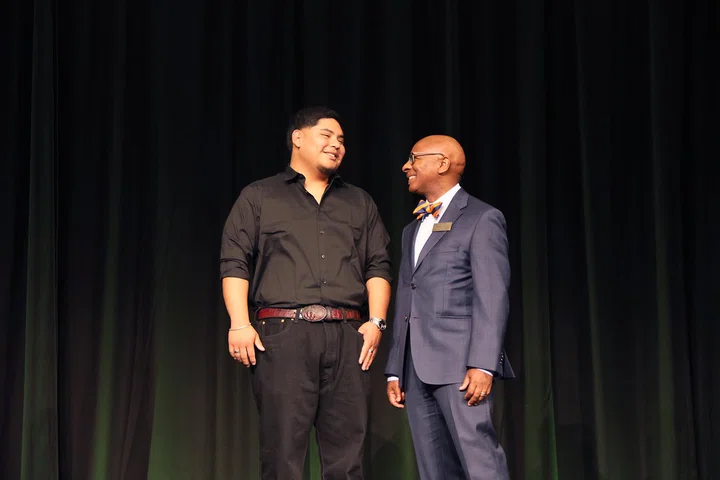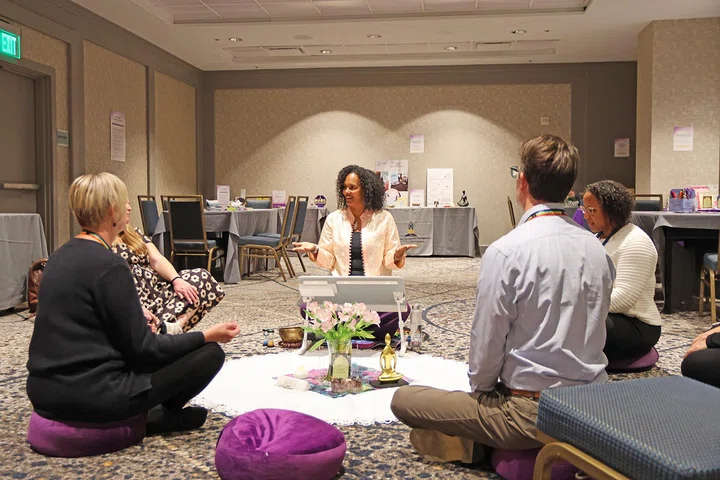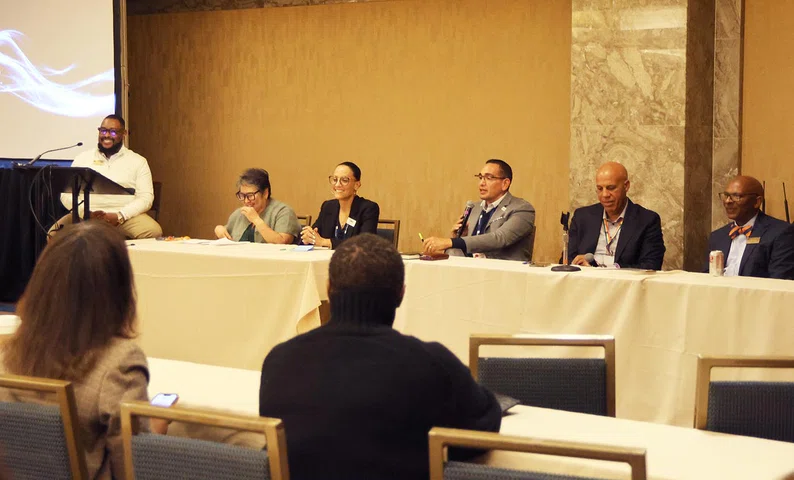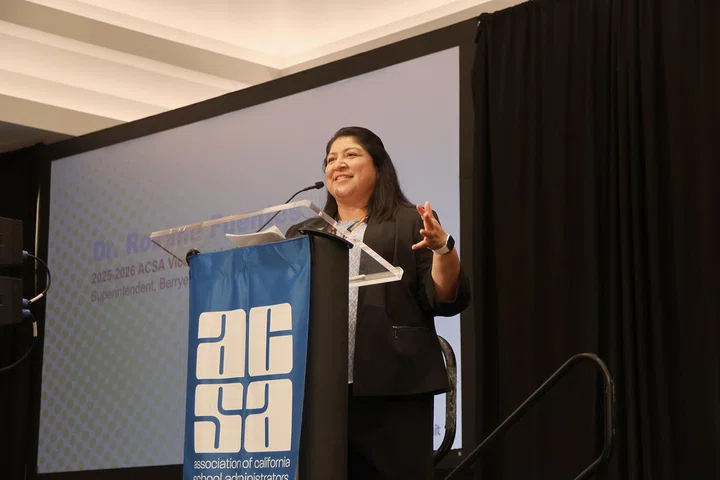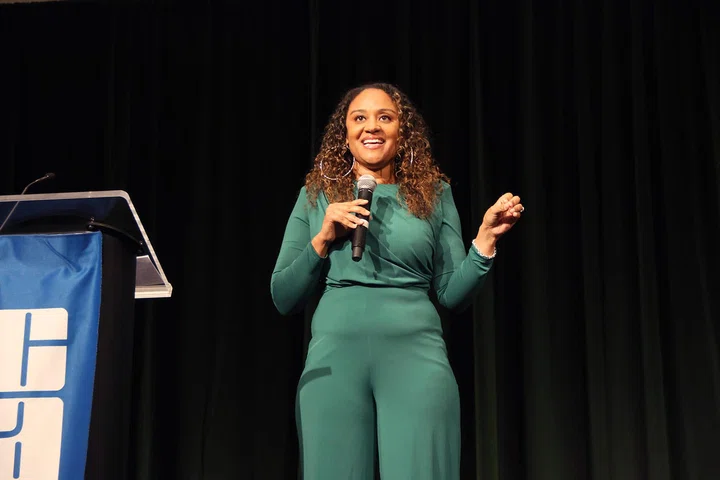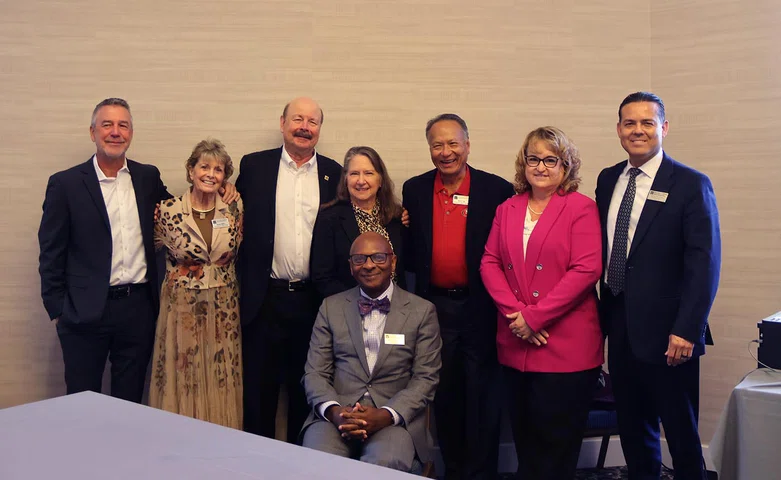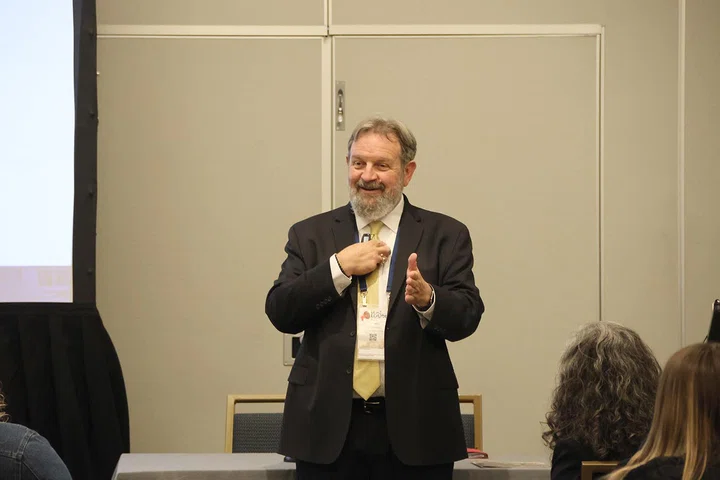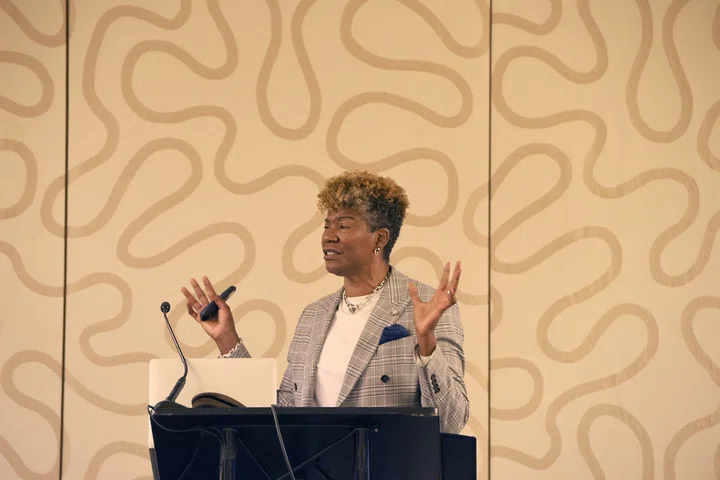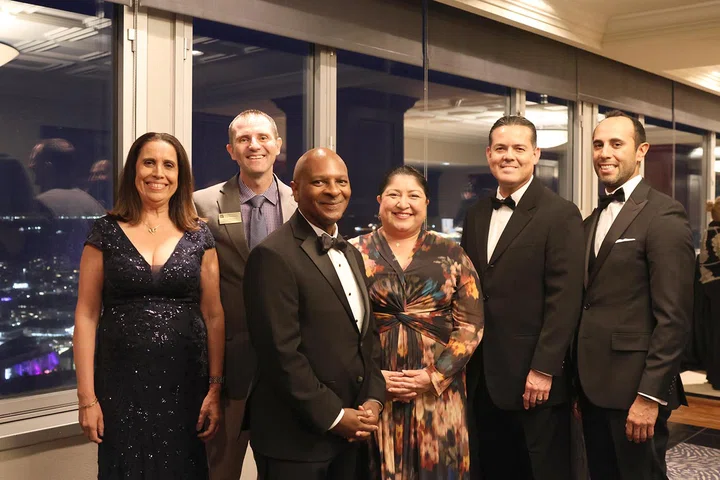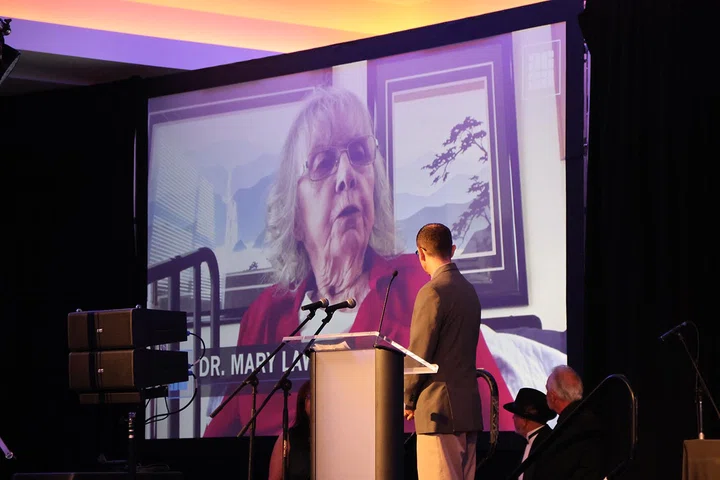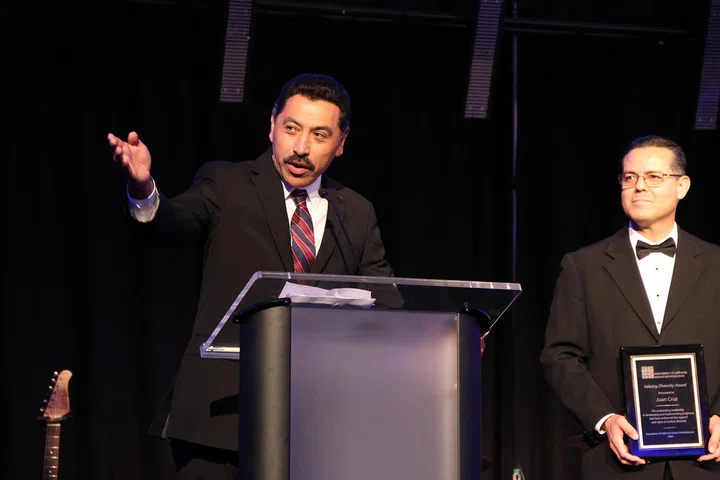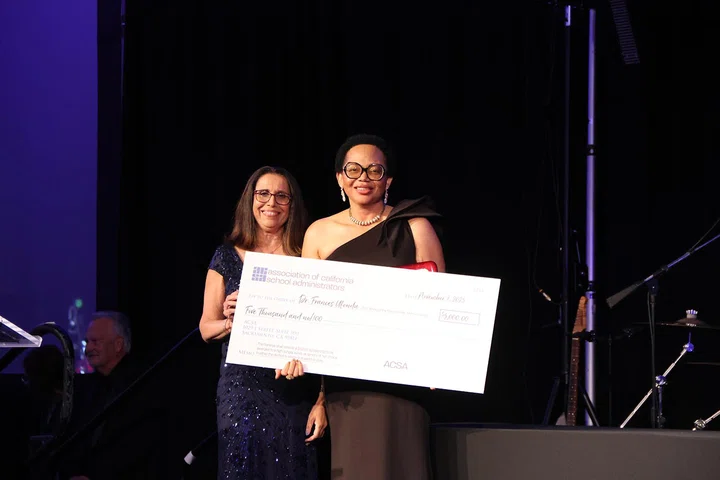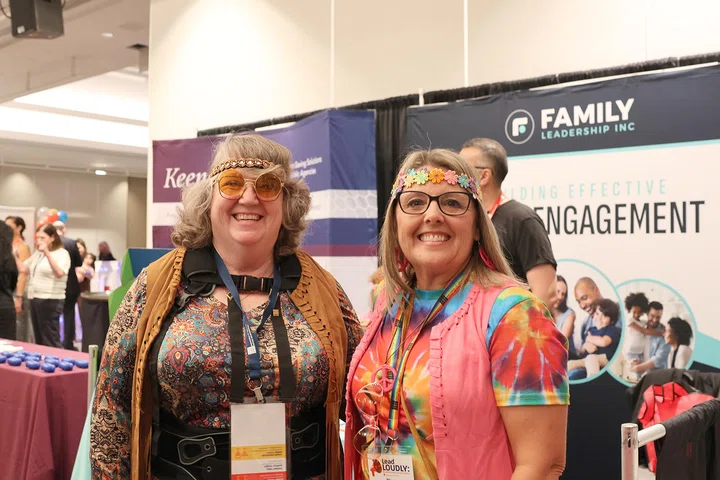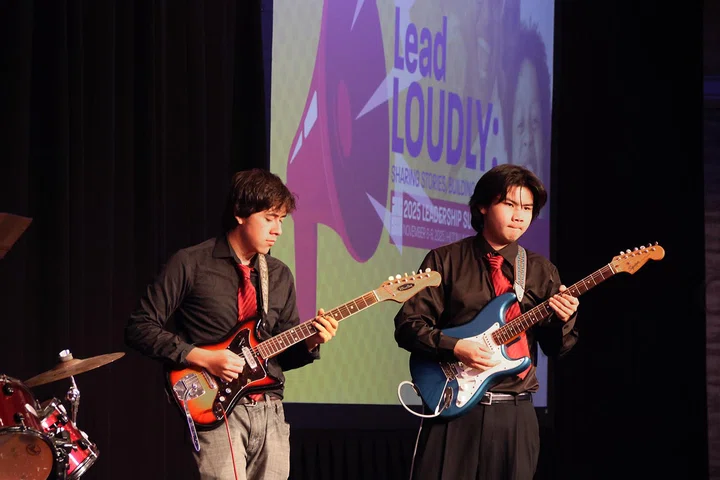More than 600 leaders from throughout California traveled to San Francisco for this year’s Leadership Summit, where attendees pondered the theme “Lead Loudly: Sharing Stories. Building Bridges.”
In his welcome remarks to start the conference, ACSA President Dr. Daryl Camp said that some of us have become desensitized to people in our communities who scream the loudest.
“It forced some of us to stop trying to connect,” he said. “However, while you’re here at the Leadership Summit, and I would say when you go back home, I encourage you as seasoned educators to connect. Talk to them. Listen to them without judgment.”
The conference began with a keynote from Dr. Calvin Mackie, who energized the crowd with an address that called on leaders to bring hope back to education.
The founder of STEM NOLA, which brings educational opportunities to underserved children of color in New Orleans, Mackie said that with the right skillset, assets and mindset, students can be self-sufficient in a harsh world. But educators need to be the ones to make them believe.
“When they come into our buildings, regardless of what’s happening out there, when they look at us, the world could be telling them no, but we’ve got to tell them yes!” Mackie said.
At Camp’s invitation, San Lorenzo USD students were bussed to the Summit to experience Mackie’s keynote. Following his address, Mackie visited with the students, answering their questions about confidence, problem solving and achieving their dreams.
“It really just changed my way of thinking,” said Brandon Sanchez, a student from San Lorenzo High School. “The way he presented himself, you just want to listen to him. We had to wake up early to get on the bus to get here. I was tired at first, and then when he spoke, I was attentive. I was listening. I was just there.”
The conference also featured a panel discussion of leaders from California Association of Asian & Pasifika Leaders in Education (CAAPLE), California Association of Latino Superintendents and Administrators (CALSA), California Association of African-American Superintendents and Administrators (CAAASA) and ACSA.
CAAPLE Executive Director Dr. Diann Kitamura, CALSA CEO Jessica Ochoa, CALSA President Dr. Juan Santos, CAAASA President Dr. Adam Clark, and ACSA President Dr. Daryl Camp, discussed collaboration between the four associations through the California Administrators’ Equity Alliance and the need to work together to change systems.
“Right now in our political climate ... the push to fragment us, to divide us is strong,” Kitamura said, adding that while each association must keep its own unique identity “it doesn’t mean that we cannot come together ... and speak from a strong voice about what the needs are of our communities.”
During Friday’s Equity Breakfast, attendees heard from Dr. Cherina Betters, chief of Equity & Access for San Bernardino County Office of Education and president of ACSA Region 12.
Betters spoke about three archetypes of equity leaders: the Equity Steward, the Equity Practitioner and the Equity Warrior. While all three have different approaches to equity, Betters cautioned that we not mistake them to be anti-equity — “they just simply have a different way of getting at the same goal,” she said.
“Open yourself to various degrees and levels that people show up,” Betters said.
During Friday morning’s keynote with Dr. Gholdy Muhammad, the best-selling author of “Cultivating Genius” and “Unearthing Joy” spoke about genius, justice and joy.
“These are concepts that don’t get a whole lot of attention in schools,” she said. “We don’t talk about joy assessments. ... We don’t talk about sometimes how our students are a genius. We sometimes can start the story in deficit ways.”
She cited recent NAEP test scores showing 13 percent of Black students were proficient in math and 17 percent of Black students were proficient in reading.
“Who needs the intervention? Is it the child or is it the system?” she asked.
Muhammad presented a new approach to curriculum, one that is culturally responsive and informed by history, that teaches students about identity, skills, intellect, criticality and joy.
Dr. Lori A. Watson, CEO of Race-Work, spoke at the Women’s Luncheon on Friday. She invoked the theme of the conference as a call to action to be anti-racist leaders, not just people with the title of “administrator.”
“Administrator does not equal leader,” she said. “I know a whole lot of administrators, but I know fewer leaders. Because leaders don’t hide behind policy when people are hurting. They don’t send one more e-mail about equity and call it a transformation. They don’t wait for permission to do what’s right for kids. They don’t whisper their convictions when the moment calls for courage.”
She asked attendees how this year’s theme lives inside them: “Because leading loudly is not about volume. It’s about values.”
While there was an emphasis on being loud in leadership, attendees also had a chance to be quiet at The R.E.S.T.’d Leader Lounge sponsored by Tici’ess.
Facilitator Tovi C. Scruggs led short meditation sessions and then attendees were free to visit stations where they explored reflective prompts and art therapy.
“I needed this,” said Jessica Riley, a principal in Linden USD. “I just felt like I’ve been in leadership for 11 years and sometimes I feel [burned out]. It’s a good reminder that what we do is hard work, but it’s good work and we need to make sure we refill our cup from time to time.”
First-time attendee Kent Chapman, a principal from Fortuna Elementary District, said his mentors suggested he attend the event. He said he’ll be bringing ideas back to his school about AI and “militant positivity” — and also renewed purpose.
“It’s just a reminder that every kid matters and that sometimes, even though we might not know, we are making a difference,” he said.
In his closing keynote Saturday, Dr. Victor Rios implored educators to reject the “pity perspective” toward students and adopt a “prosperity perspective” of students who experience struggle, “because it’s within those struggles that they gain their superpowers,” he said.
Rios, a professor of sociology at UC Santa Barbara, has championed using the term “at-promise” students, which replaced “at-risk” in California Education Code as a result of the passage of AB 413 in 2019.
“Sometimes our young people enter the system at such young ages feeling like they have not hope. Feeling like they have no future. ... the best thing that our educators can do is uplift them. Help them not just overcome but overstand those obstacles that they face.”
Rios showed a video clip from the 2015 documentary about migrant farmworkers “East of Salinas,” which features the story of an 8-year-old boy named Jose and the teacher, Mr. Ramos, who inspired him. Rios reported that the boy is now in college on a full-ride scholarship.
“What if I were to tell you that if you were to instill that hope — relentless hope — in all your educators, that we would see more Joses?” he said. “What if I were to tell you that that little boy Jose — he’s no longer a little boy. That little boy Jose, he’s in the room today with us.”
Rios then surprised the audience by inviting Jose Anzaldo onto the stage, where he spoke about educators having “faith that our students are capable of doing great things.”
“Leading loudly is not about volume. It’s about values.”
— Dr. Lori A. Watson, CEO of Race-Work and speaker at Women’s Luncheon
Quick Takes: What was a standout session you attended at Leadership Summit?
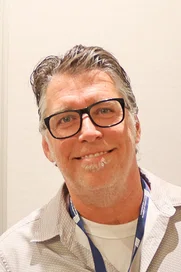
“Navigating Volatile Parent Conversations and Complaints,” presented by David Marshall and Gabriela Alonso
“I wrote a lot of things down — a lot of one-liners and quotes that I think I’ll take back. ‘Take away the audience’ when you’re having an issue with parents, move them into a more private area. ‘Underpromise and overwhelm.’ ‘Validate parent emotions.’ He had folks actually talk to neighbors and report back ... it made everybody open up.”
Dr. Craig Mello, Principal, Keyes Elementary School
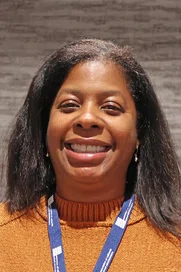
“From Pilot to Practice: Strategies to Accelerate Student Outcomes through Curriculum Adoptions” presented by Ashmeet Sahni and Lorianne Ventura
“What I enjoyed is that the presenters were honest. They didn’t make it seem like this is going to be easy. They shared that sometimes you will get pushback, and how do you respond when your colleagues push back?”
Erika Brown, Assistant principal, Dublin USD
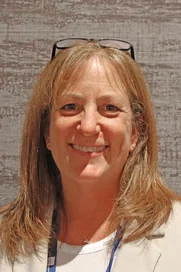
“Getting to the Heart of Trauma-informed Education” presented by Ana Boyenga and Lyndsey Remmen
“It’s something that I’m dealing with right now, [so] to go in and have something that is real right now was amazing. The presenters were engaging ... they also gave really practical solutions. Here’s how we did it, but if you can’t do it that way because you didn’t have the funding we had, here’s some other ideas on how you can approach it, which I thought was fantastic.”
Michelle Graham, Coordinator, San Bruno Park SD
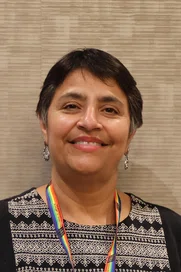
“AI is Not Your Secretary: Start Thinking Bigger” presented by Christian Jackson and Melanie Matta
“I’m going to bring Jackson to the superintendents in our county to do some learning together, not just on AI but more of a systemwide approach to leveraging AI as a tool beyond productivity, so I’m excited about that.”
Bhavna Narula, Superintendent, Bayshore Elementary School District





